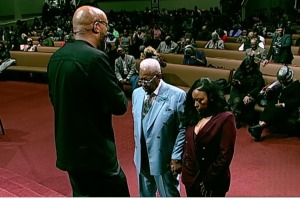People Can't Be Christians If They Don't Believe in the Resurrection, Says Former Chaplain to Queen Elizabeth
Rev. Dr. Gavin Ashenden, former chaplain to Queen Elizabeth, said those who do not believe in the resurrection of Jesus Christ cannot truly be Christians.
Ashenden wrote an open letter to the Times and tackled the recent survey commissioned by the BBC, which revealed that a quarter of British Christians do not believe the resurrection took place.
He said these Christians who do not believe in the resurrection "made the mistake of confusing British culture with Christianity," according to The Telegraph.
"Those people who neither believe in the resurrection nor go anywhere near a church cannot be 'Christians,'" he stressed. "As with so many things, the key is in the definition of terms. Discovering the evidence for the resurrection having taken place to be wholly compelling is one of the things that makes you a Christian; ergo, if you haven't, you are not."
The survey was conducted by ComRes on 2,010 British adults by telephone for 10 days in February. They were asked a series of questions about their beliefs about the Bible and Easter.
Unlike Ashenden, however, Lorraine Cavanagh, the acting general secretary for Modern Church, understands the reason for the mindset of British Christians who say they do not believe in Christ's resurrection.
"To ask an adult to believe in the resurrection the way they did when they were at Sunday school simply won't do, and that's true of much of the key elements of the Christian faith," she said.
An "adult faith requires that it be constantly questioned, constantly re-interpreted," she added.
As for Anglican Bishop of Manchester David Walker, he welcomed the results of the survey because it only proves that many British people still hold core Christian beliefs, even if they do not attend church regularly.
Even those who follow no specific religion showed high levels of religious beliefs, Walker maintained, which is "often erroneously referred to as secularists or atheists."



























